Blake Butler
http://www.gillesdeleuzecommittedsuicideandsowilldrphil.com/
Blake Butler lives in Atlanta. His third book, There Is No Year, is forthcoming April 2011 from Harper Perennial.
http://www.gillesdeleuzecommittedsuicideandsowilldrphil.com/
Blake Butler lives in Atlanta. His third book, There Is No Year, is forthcoming April 2011 from Harper Perennial.
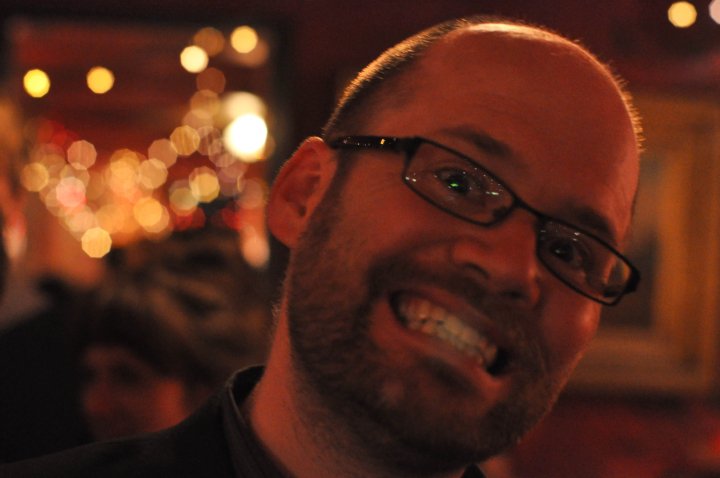
I can’t say enough about how important the work of Johannes Göransson has been to me, both as a field of language and image, and as a person. Besides co-editing both Action Books and Action Yes, two places where you can always depend on reading work that is new, singular, challenging, and actually fun, he has published four full length books of his own work, including Dear Ra, A New Quarantine Will Take My Place, Pilot, and most recently Entrance to a colonial pageant in which we all begin to intricate from Tarpaulin Sky, as well as translations of important Swedish writers like Aase Berg and Johan Jönsson [if you haven’t read his Swedish issue of Typo, holy shit], and wrangling of the insane machine that is the hybrid litblog Montevidayo. Not to mention being a teacher (which, when reading some of his students’ work, and what mechanisms he gets out of them so early, equals a particular feat), a father, a husband, and a person. In no small words, a fucking force.
Over the past few weeks I exchanged emails with Johannes about all of the above and more.
* * *
BB: I remember reading pieces of the Pageant years ago I think under the name New Torture Operations, yeah? How did this project begin and manifest itself into the book it is, on an assemblage level?
JG: Yes, I think that was one early version of what became, among other things the pageant. It also became the second half of the performance piece The Widow Party and my novel Haute Surveillance (which is not published). Assemblages do play a big part in the way I compose these. In part they come out of a piece I wrote over a couple of years a few years ago, The Black Out Sessions or The Secessions (it has many names), and which I haven’t and won’t publish (well I did publish some of them before deciding that it wasn’t the right thing to do), but from which I create various assemblages – such as in The New Torture Operations, The Widow Party and Pageant, all of which form assemblages between torture and fashion, the anorexic body and performance, atrocity and kitsch, colonialism and the nuclear family.
When I was working on these Black Out Sessions I was also studying Brazilian-Swedish artist-poet Oyvind Fahlstrom’s work from the 1950s and 60s and he uses this funny pun – he doesn’t make “collage,” he says he makes “kalas,” which is Swedish for “party”. And the way this works out is that his artworks parties (though it’s usually translated as “feast”) on other works of art or texts. So there’s a party on Mad Magazine, or a party on Burroughs etc. So the Black Out Sessions were parties on just about anything I could find. I was both very creative and totally unfocused so I decided this wasn’t a finished text but something that I would party with/against/on with these other manuscripts. The Black Out texts became a kind of “party” energy which I used on other texts and subject matters to form assemblages. In the particular pieces that are in The New Torture Operations and pageant are parties on this 19th century antique textbook a student gave me years ago – what every student needs to know about the world. This includes chapters on astronomy, “The Vasty Deep,” and “The Flowery Kingdom” (China). A lot of what a student needs to know, it turns out, is about the morality of various colonial ventures (Stanley and Livingston get their own full chapter). Interestingly my home country of Sweden gets I think one sentence in a paranthesis and it’s something like “… (in difference to the Scandinavian countries, about which not much is known other than that they are the ugliest and least intelligent of people).”
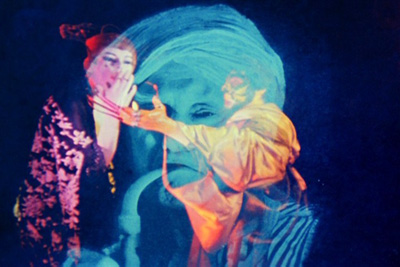
1. Simmons is running in a fundraiser for breast cancer, and generously giving away unique objects if he gets $600 in pledges. Consider making a contribution.
Also, if you happen to be in Portland tomorrow, Simmons is reading with Tim Horvath in support of the new Conjunctions here.
2. At Jewcy, a great interview with Paris Review editor Lorin Stein by Adam Wilson.
3. Joe Hall & Brandon Shimoda discuss their recent titles from Black Ocean on the radio at The Blood-Jet Writing Hour.
4. Tao Lin has a new weekly column on Vice involving Drug-Related Photoshop Art.
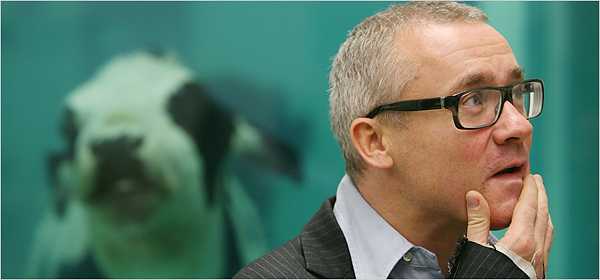
“Every day your relationship with death changes.”
“You’ve got to be oblivious to other people-the push and pull of other people’s opinions, the way other people measure success. It’s then that you realize you are 100 percent who you are and you have to use that who-you-are 100 percent in order to create great things. And that’s very difficult because everyone wants to be better than they are. You’ve really got to get down on the floor with yourself and get low in order to make great art. I think you’ve just got to accept who you are and do the most unbelievable things.”
“I sometimes feel that I have nothing to say and I want to communicate this.”
“Artists are like everybody else.”
“And I think, you know, I like it, so I can’t understand it, I think if you’re gonna have this stuff going in your ears, you might as well have some stuff going in your eyes.”
“I wanted a shark that’s big enough to eat you, and in a large enough amount of liquid so that you could imagine you were in there with it.”
“There’s always something you missed or something you didn’t notice or somehow you got wrong… I don’t really have a beginning.”
“Architects don’t build their own houses.”
“I always feel like the art’s there and I just see it, so it’s not really a lot of work.”
“I’m more interested in why people are frightened by Jaws and why Jaws was such a hit than saying Spielberg’s my main influence.”
“Sometimes when you’re drunk you can see better.”
“I always liked the fact that you get these totally unacceptable images, but they’re taken by a really expensive photographer, with great light, and in terms of the quality of the photograph it’s a great photograph, but in terms of imagery it’s unacceptable, and I like that contradiction.”
“People say to me that my work’s sensational. And I go, “What’s wrong with sensation? It’s like touching skin.” Sensation is an element of what I do, and why not? It’s not sensational for the sake of being sensational, but it’s sensational art.”
“I don’t think I invented anything. It’s like I just saw it, just because I did it first. The road was there. It was going to happen.”
“It’s good to have a title that’s not just one word. If you’re gonna title it, you might as well try and say something.”
“There’s no possible way you can get what you want.”
“The great thing about painting now is that I’ve gotten to the point where I can forget everything just by doing it. And I never used to be able to do that.”
“I just wanted to find out where the boundaries were. I’ve found out there aren’t any. I wanted to be stopped but no one will stop me.”
“I don’t mind if it falls over… if you break the glass you replace the glass, if the sheep falls out you can always get a new sheep.”
“Warhol said a brilliant thing. He said if anybody slags anything off, make more.”
This is an open call for a position as Reviews Editor of HTMLGiant. Responsibilities would include organizing regular posts and reading/selecting/soliciting incoming reviews. Modest monetary compensation. Interested parties please email blake [at] htmlgiant [dot] com with anything you think I should know. If you don’t hear back, we filled the spot. Thanks! Thanks to all who responded so fast. We got more than we expected. More soon.
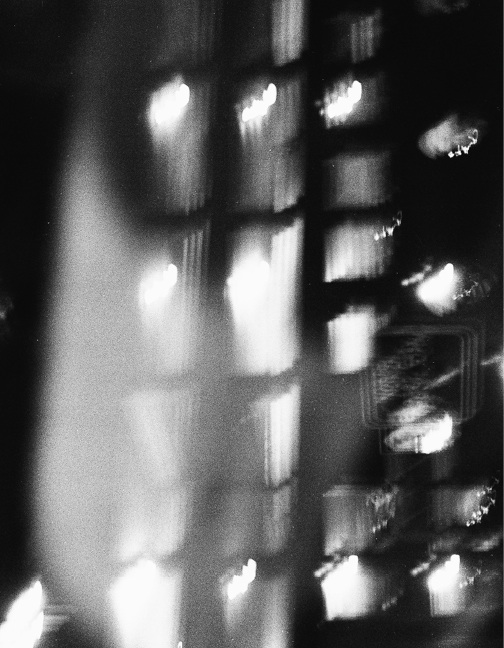
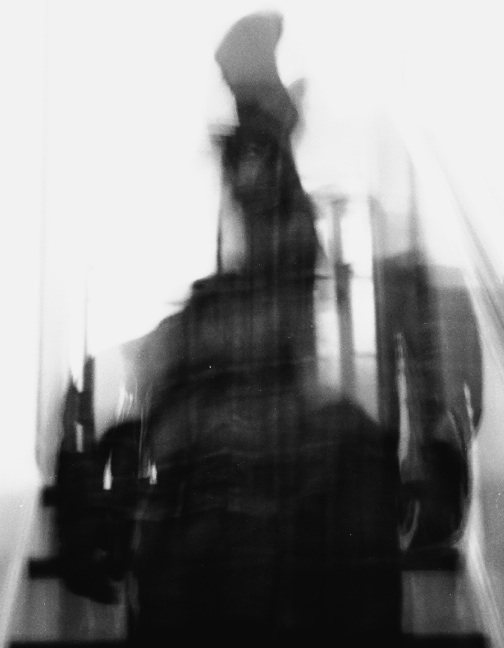
Pardon the shameless self post, but it’ll be quick: Harper Perennial has agreed to give away framed, original limited edition prints of three images created by Justin Dodd that appear in There is No Year (examples of which are above). There are two ways one can win:
(1) The book includes information of the odd deaths of certain young celebrities. An example: “Rainer Werner Fassbinder died with a cigarette in his mouth and blood pouring from one nostril.” Comment here with some kind of information of this sort about a person that doesn’t appear in the book, also in one sentence.
(2) Take a picture of yourself close to a mirror holding the book and put it somewhere online, then post a link here.
Three winners will be selected (1 or 2 by choice from the death facts, 1 or 2 at random from the pictures) to received a framed edition of one print of any image in the book, your choice, or I will choose for you. Others chosen at random from the celeb facts may receive a copy of the book.
Winners be selected this Sunday.
Thanks for the indulgence.
Frank Hinton has a book out, I Don’t Respect Female Expression, published by Safety Third Enterprises.
Reading Frank Hinton is bracing, like stepping outside on a brisk, windy day freshly showered, contacts newly put in. I feel unsettled and unsure. An implacable menace hangs over these pieces like death every moment. The book is thematic at the language level. There is talk of physical and emotional bonds. There is meditation and joyless sex and animals in traps and death and death. Almost every piece directly or indirectly involves death. Hinton has spoken in an interview with Dark Sky about doing Osho’s death meditation.
Like waking from death meditation, sensory details are heightened: clementine juice filling one’s mouth; thick curls of hair crowning the base of a father’s penis; etiolated skin; a round, plump ass; the taste of one’s t-shirt collar.
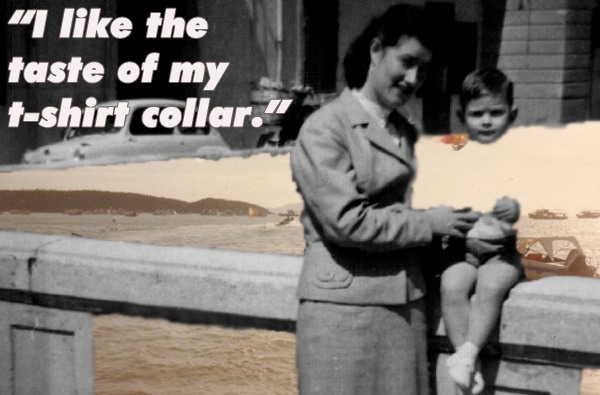
LOL re Dale Peck: “Literature cannot be saved, because literature saves us. When it no longer saves us, it is no longer literature.”